Japan
Japan considers one operator to run all nuclear plants
Option will also keep Tepco alive to pay its debts. Japan’s government is discussing this radical overhaul of its nuclear power sector to rebuild an industry wracked by the aftermath of the 2011 Fukushima nuclear disaster and strong public opposition to nuclear energy. The proposed sole operator that will handle all 50 reactors. will be owned by Japan’s nine regional utilities and two wholesalers (Japan Atomic Power Company and Electric Power Development Company). The government and local reactor makers will provide financial and technical support, said Taku Yamamoto, chairman of the Liberal Democratic Party’s energy committee. Part of the profit from sales of the new company’s electricity will be used for the cleanup of Tokyo Electric Power Company’s (Tepco) destroyed Fukushima nuclear plant and victim compensation, which combined may cost over US$112 billion. The plan will keep Tepco alive to shoulder Fukushima costs and avert any blackouts in Tokyo, which will host the 2020 Olympic Games. Yamamoto said the plan is based on Tepco’s profits covering Fukushima costs without taxpayers’ money and to increase the government’s role in the nuclear industry. He said Tepco has to go on working hard for the Fukushima disaster until it dies.
Japan considers one operator to run all nuclear plants
Option will also keep Tepco alive to pay its debts. Japan’s government is discussing this radical overhaul of its nuclear power sector to rebuild an industry wracked by the aftermath of the 2011 Fukushima nuclear disaster and strong public opposition to nuclear energy. The proposed sole operator that will handle all 50 reactors. will be owned by Japan’s nine regional utilities and two wholesalers (Japan Atomic Power Company and Electric Power Development Company). The government and local reactor makers will provide financial and technical support, said Taku Yamamoto, chairman of the Liberal Democratic Party’s energy committee. Part of the profit from sales of the new company’s electricity will be used for the cleanup of Tokyo Electric Power Company’s (Tepco) destroyed Fukushima nuclear plant and victim compensation, which combined may cost over US$112 billion. The plan will keep Tepco alive to shoulder Fukushima costs and avert any blackouts in Tokyo, which will host the 2020 Olympic Games. Yamamoto said the plan is based on Tepco’s profits covering Fukushima costs without taxpayers’ money and to increase the government’s role in the nuclear industry. He said Tepco has to go on working hard for the Fukushima disaster until it dies.
Japan will retain nuclear power
Will maintain its current share of nuclear energy. Japan's government will maintain nuclear energy’s share in its energy mix with the proviso that safety is assured. Media sources said the Japanese government will revise its current energy policy, devised in 2010 by the end of 2013. The new policy will contain revisions and reflections upon the Fukushima-Daiichi nuclear disaster of March 2011. Policy revision work will begin in November. A subcommittee called the Advisory Committee for Natural Resources and Energy will be in charge of revisions. Japan current energy policy calls nuclear power a key source of electric power. Japan also has a policy to increase the proportion of its power generation that produces no greenhouse gases or carbon dioxide to 70% non-emitting sources by 2030. Prime Minister Shinzo Abe said his government intends to cut Japan's reliance upon nuclear energy wherever possible.
Japan installs 1.82 GW of solar PV capacity
Boosted by commercial project installations.
Mitsubishi organizes energy subsidiary in China
Expects steady market growth in China.
What you must know about the power of the 2020 Tokyo Olympics
Sunday 8 September was an exciting day in Japan. In the early hours the International Olympic Committee (IOC) announced that Tokyo will host the 2020 Olympic Games for a second time (first time was in 1964).
Toshiba moves into wind energy business
Acquires Japanese wind farm company.
Japan attains solar power milestone
Becomes one of only five countries with 10 GW solar capacity.
Japan to begin building world’s largest storage battery
This could begin as early as this autumn.
Japan’s dependence on renewable energy rising
Japan’s “zero nuclear power” state accelerating development of renewable energy. As a result, the total amount of grid-connected installations may reach 7 GW this year or triple the installations last year. Ever since the Fukushima nuclear disaster, most of the nuclear power plants have been shut down causing the usage of nuclear power to drop from 33% in 2010 to 2.15% in 2012. The top 10 power utilities significantly increased the usage of thermal power generation from 59.1% in 2010 to 89.8% in 2012. This forced Japan to import large quantities of coal, oil, natural gas and other fuels. These utilities have purchased more power generated from solar energy since 2008. The annual growth rate increased from 9.25% in 2008 to 45.89% in 2011. According to EnergyTrend, the amount of grid-connected installations in Japan has continued to increase.
Japan to enhance energy development in Turkmenistan
Will use advanced Japanese technology to do so.
Japan prepares for reform of troubled power industry
Reform to focus on breaking-up regional utilities.
Japanese PV module shipments jump 304%
Total PV sales by Japanese companies also rise.
Pakistan turns to Japan for succor from energy crisis
Eager for Japanese investment in energy sector.
Toshiba expanding electrical power business in India
Acquires a majority stake in Vijai Electricals.
Lucrative power business sees entry of 100 new Japanese firms
Deregulation boosting number of electricity providers.
Wind power “best solution for Japan”
Hopes high for world’s first offshore wind farm.
Japan will become PV energy storage market leader
Market to reach US$2.8 billion over next five years.


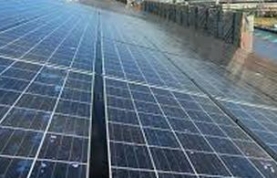
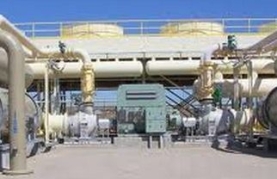

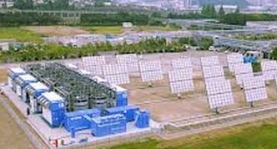
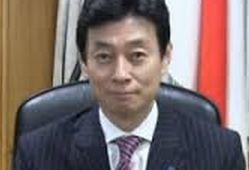

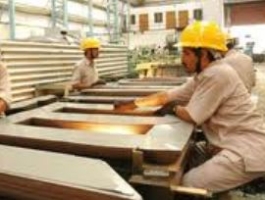
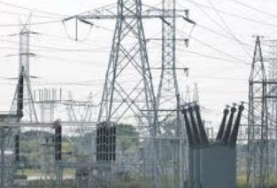



 Advertise
Advertise



















